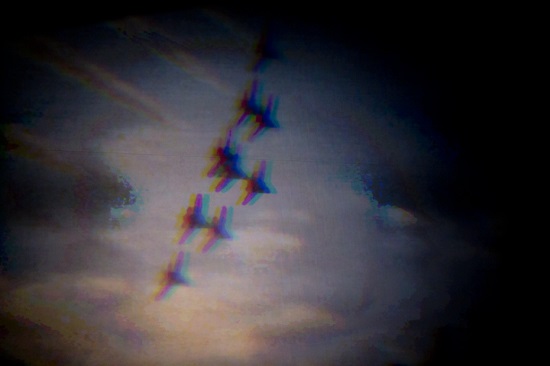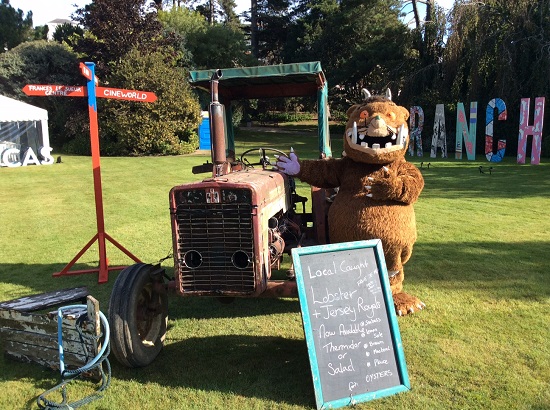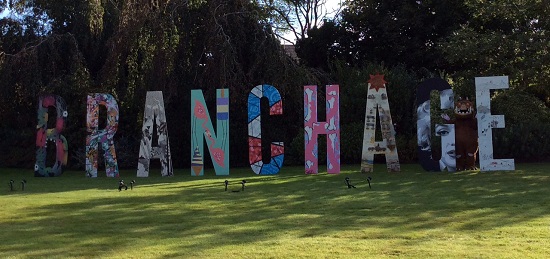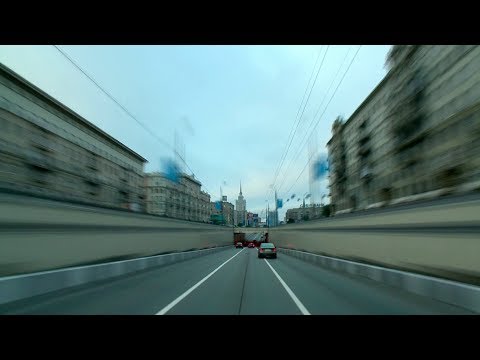The Point Of Film Festivals (Or, At Least, This One)
What is the point of a film festival? What is their actual function? What Branchage does is it aspires – and succeeds – in showcasing as catholic a taste as possible and eschews safe choices in favour of film makers and artists who are taking risks instead of marking time. It’s always tempting to include films in a programme by a well-known director of minimal worth rather than challenge audiences with something that’s new and unknown. And it’s hard not to view Branchage festival as a bastion of bloody-minded film programming, sticking to the principle of film as an art form. This Branchage festival was programmed with flourish and aplomb and studded with invention. Accordingly, you had the likes of Dominik Spritzendorfer and Elena Tikhonova’s Elektro Moskva, their study of the golden age of Soviet electronic music, cosying up to a Peter Sellers double bill (the hitherto assumed lost Dearth Of A Salesman and Insomnia Is Good For You) while nearby, Chris Watson’s Nature Disco whipped up the sonic and the bucolic into an Arcadian frenzy. Of course, the problem with a lot of things so overtly left-of-field is that you end up emerging from the cinema perplexed about what you actually just saw but sure that it was Art. This didn’t happen at Branchage, the programme was often beguiling but never bewildering.
The Less You Think About Things, The More Sense They Make
Prior to my arrival in St. Aubin, Jersey for the Branchage Festival, my knowledge of St. Aubin and its inhabitants was somewhat limited. However, it soon transpired that the locals’ knowledge of me was similarly lacking so we all began things on a fairly even keel. Anyway, I’m soon wandering around the village, in search of a boozer with a decent pint. The Courthouse someone suggests, or maybe it was the Old Courthouse. Either way, it didn’t matter as I’ve an utterly appalling sense of direction and was soon sauntering off entirely the wrong way, following the coast towards St. Helier. I kept walking, aware that I was probably not going to find this elusive bar but also having inexplicably and bloody-mindedly decided not to ask anyone for directions nor consult my phone. And I didn’t want to just turn around and walk the other way because, you know, that looks strange. So, I’m strolling along, staring out across the bay, convinced I can see France even though its pitch black and I’m probably just looking at a stationary yacht. At some point along the journey, I encounter three people, not locals as such but they claim to have lived in Jersey since the early 1970s, and we stop off at a bar and they begin to quiz me about the Branchage Festival. One of them is from Birkenhead and he has a curious way of telling a story, like it’s loaded with falsehoods or deeper meanings which I’m not quite privy to, and he tells me this ludicrous story about Branchage and the origin of the name and how it has to do with a local law which insists residents have their hedges cut to a certain level and how they could be massively fined if their vegetation becomes too bountiful. I was actually quite impressed with the ingenuity and style with which he concocted his tale but wanted to prove that I wasn’t your typical island visitor, ready to believe anything I was told, so I laughed heartily at the story’s conclusion, a response which must have baffled him somewhat as it transpired that, in fact, the story was entirely true.
There Is A Plethora Of Liverpudlians In Jersey
Everywhere I went, I encountered someone from Liverpool. Or near Liverpool, like that guy with the story about the hedge. Don’t get me wrong, this was not a bad thing. There’s a real sense of impending mania about Liverpool and its inhabitants, a trait which makes me feel at home in their presence. But the Liverpudlians which made the best impression on me were Stealing Sheep whom – along with Dr. Dick Mills from the Radiophonic Orchestra – crafted a live soundtrack to René Laloux’s slightly demented 1973 animation Le Planète Sauvage. Stealing Sheep were utterly bewitching with their percussion-heavy, electronic tinkerings. The beauty of this event was that it was on in a Methodist church in the early evening, brightly lit and brimming with colour and bright-eyed enthusiasm. Accordingly, the new soundtrack fizzed and bleeped and popped in calibration with the film’s vivid surrealism, the graphic richness matched by sheer sonic invention. More than anything though, this event was tremendously entertaining and a worthy conclusion to the festival’s film and music live events.

The Radiophonic Workshop Might Be Linked To The End Of History
The key players in this year’s Branchage Festival were the Radiophonic Workshop. The resurgent pioneers of deceptively dark electronica pervaded the entire programme from their film curation to hosting talks about their work and to their soundtracking of the 3D-mapping of St. Aubin’s Fort. One of the films the Workshop chose to show was Peter Strickland’s Berberian Sound Studio. At a Q&A session after the screening, the Workshop intimated that his film – where the life and work of a Foley artist becomes blurred to the point of absolute insanity – was a very true, if somewhat exaggerated, reflection of their past lives working within the realm of Foley sound. But the Workshop also made reference to an imminent album release. This begs the question: what next for the Radiophonic Workshop? Their output is steeped in the past, etched on to the British psyche from their soundtracking everything from Look And Read to Doctor Who. So, if they release a new album, how will it sound? Does it have to sound like it was recorded in the early 1970s? Can the current iteration of the Radiophonic Workshop move forward with the times or are they indelibly steeped in the musty mists of a bygone era, forever destined to soundtrack the past; a nostalgia for a very 1970s idea of the future? Whatever happens, their next move is going to be very interesting indeed.
Nature Writers Are Actually Quite Reasonable People
Nature writing, or new nature writing, has received a bit of a lambasting in recent times. Such whimsy! Such flights of fancy! Death to pastoral nostalgia! But the readings at Branchage organised by the excellent blog Caught By The River effortlessly and stylishly ridiculed such criticisms. Richard Benson, Will Burns, David Callahan, Tim Dee and Emma Warren wrote and spoke with warmth and panache and appeared to tap into something of the old world, as if they were privy to a lost memory buried in the human psyche. In particular, Richard Benson’s reading from his extraordinary novel The Valley was steeped in a rich history emanating from his south Yorkshire mining background, with the beautifully judged present-tense dialogue brought to life through Benson’s mellifluous Yorkshire tones.

Only Losers Take The Car
The something unerringly forgiving about Jersey. After a night of heroic over-indulgence, just one glance across the bay is equivalent to any number of Nurofren Plus. I’ve become accustomed to the relentless capital punishment of London town yet, when I most needed it, Jersey provided solace, reflection and, most importantly, preposterously long walks along the beach. Who needs a car in this climate? Well, most people, but I was content with my inability to drive and subsequent reliance on my two feet. It hasn’t always been like this; some time ago, I spent a tumultuous year living in New York and whenever I said to an American that I could not drive, they automatically assumed it was due to some severely debilitating physical handicap. What I ought to have said is that I don’t drive. Nevertheless, Jersey offered contrition and validation when I needed it most. Can any other festival match this claim?



